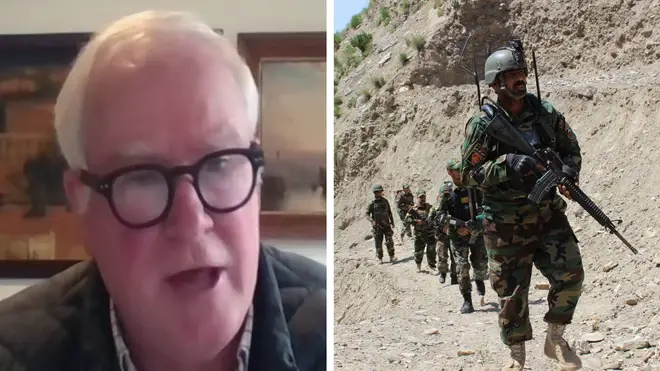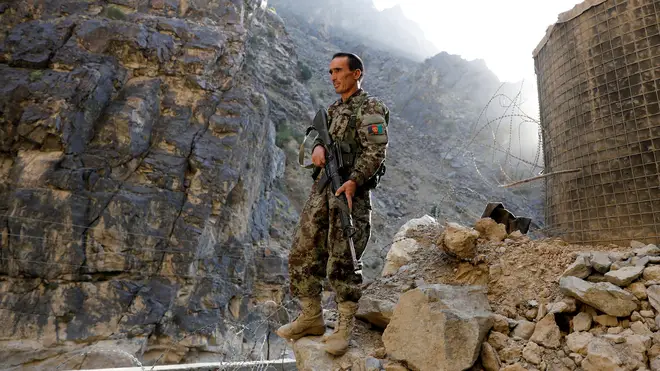
Paul Brand 3pm - 6pm
8 August 2021, 13:06 | Updated: 8 August 2021, 13:09

The UK has a "moral responsibility" to resettle interpreters and other Afghans who worked with Britain as the Taliban continues to make gains, an ex-foreign policy chief has said.
The militant group has taken full advantage of the withdrawal of the US, UK and foreign forces and captured swathes of land.
They are attempting to take provincial capitals as the civil war with the Afghan government rages on.
The US is providing air strikes for the country's security forces but Sir Mark Lyall Grant, the former UK National Security Adviser, fears the Taliban will be governing in Afghanistan by the end of the year.
Speaking on Swarbrick on Sunday, Sir Mark said: "It's really important that we offer sanctuary wherever possible to those Afghans who we have put in danger, we have made more vulnerable because of our intervention.
"The interpreters, the cooks, the staff who worked with the British, I think we do have the moral responsibility to give them the ability to move to the UK."
Read more: Government advises against travel to Afghanistan due to 'worsening security situation'
Read more: Ex-Soldier says British lives lost in Afghanistan 'were for nothing'

Former diplomat says UK should resettle Afghans who helped Britain
There are fears those who helped coalition forces during their counter insurgency mission will be punished in reprisals as the Taliban captures more territory.
And Sir Mark, who was National Security Adviser between 2015 and 2017 and also served as Permanent Representative of the United Kingdom to the UN, believes the militants will gain some form of influence in Afghanistan's future.
"I certainly would expect by the end of the year the Taliban will either be participating in the Government in Kabul or dominating the government in Kabul," he said.
However, he told Tom Swarbrick while this would be a tragedy for Afghanistan and areas such as women's education, he does not believe this will necessarily be a threat to the UK's security.
He said the Taliban do not have a global agenda, unlike Islamist terror groups which have attacked states across the world.

The Taliban may have learned their lesson from 2001, when they were overthrown by Afghan groups backed by the US and Western countries for harbouring Al Qaeda after the September 11 attacks.
Sir Mark said the UK can still contribute to the fight against the Taliban by carrying out "counter terrorism action", providing support to the legitimate government and encouraging regional countries to step up their efforts to create stability.